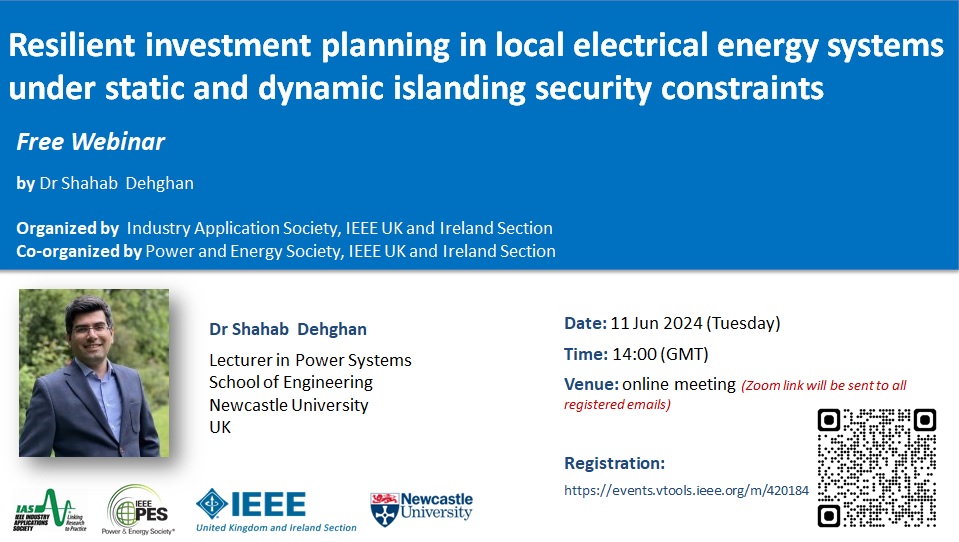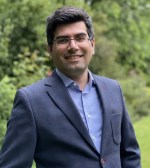Resilient investment planning in local electrical energy systems under static and dynamic islanding security constraints
Please join us on an invaluable Free Webinar on resilient investment planning in local energy systems, delivered by Dr Shahab Dehghan from Newcastle University, UK

Date and Time
Location
Hosts
Registration
-
 Add Event to Calendar
Add Event to Calendar
Speakers
Shahab Dehghan of Newcastle University
Resilient investment planning in local electrical energy systems under static and dynamic islanding security constraints
The integration of frequency dynamics into the investment and operational planning of local electrical energy systems is crucial for ensuring system security in post-contingency states. However, incorporating both static and dynamic security constraints in such planning is challenging under conditions of low-frequency high-impact and high-frequency low-impact uncertainties. This complexity arises from the highly non-linear and non-convex nature of the analytical closed forms of frequency metrics (e.g., frequency nadir) and power flow constraints. To address this issue, this research introduces two algorithms designed to decompose the uncertainty-aware resilient investment planning problem of local electrical energy systems into multiple levels, thereby enhancing computational tractability and optimality. Additionally, the sensitivity of decisions at each level is captured through corresponding dual cutting planes, which help model feasible secure regions. This approach not only ensures the optimal determination and placement of inertia services but also accelerates the convergence of the proposed decomposition algorithms. The performance of these uncertainty-aware algorithms has been efficiently and effectively tested and verified across different networks under various operating scenarios.
Biography:
Dr. Shahab Dehghan is a Lecturer in Power Systems at the Electrical Power Group in the School of Engineering at Newcastle University. Over the past decade, he has conducted research on modelling and analysing power and energy systems, intending to make future energy networks more sustainable, resilient, reliable, and cost-effective under static and dynamic techno-economic constraints. This includes the design of uncertainty-aware data-driven tools for investment and operation planning in multi-vector net-zero emission energy systems, transmission and distribution networks, and microgrids, with a specific focus on the integration of renewable resources, electric vehicles, storage systems, and power-to-gas/gas-to-power technologies as flexible sources. His research involves the development of several practical software packages, including an open-source Python-based Energy Planning (PyEPLAN) model developed at the University of Leeds for creating sustainable microgrids in remote areas and a Whole-Electricity System Investment Model (WeSIM) developed at Imperial College London for creating net-zero emission whole energy systems.
Email:
Address:School of Engineering, , Newcstle upon tyne, United Kingdom, NE1 7RU

